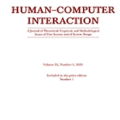In the media, in policy-making, but also in research articles, intelligent systems are referred to as algorithms, artificial intelligence, and computer programs, amongst other terms. We hypothesize that such terminological differences can affect people's perceptions of properties of intelligent systems, people's evaluations of systems in application contexts, and the robustness of research as findings may be influenced by terminological differences. In two studies (N = 397, N = 622), we show that terminology does indeed affect laypeople's perceptions of system properties (e.g., perceived complexity) and evaluations of systems (e.g., trust). Our findings highlight the need to be mindful when choosing terms to describe intelligent systems, because terminology can have unintended consequences, and may impact the robustness and replicability of HCI research. Additionally, our findings indicate that terminology can be used strategically (e.g., in communication about intelligent systems) to influence people's perceptions and evaluations of these systems.
翻译:在媒体、决策以及研究文章中,智能系统被称作算法、人工智能和计算机程序等术语。我们假设,此类术语差异可能影响人们对智能系统特性的看法,影响人们在应用情况下对系统的评价,影响研究结果的稳健性,而研究结果可能受术语差异的影响。在两项研究(N=397,N=622)中,我们显示术语确实影响非人对系统特性(例如,所觉察到的复杂性)和系统评价(例如,信任)的看法。我们的研究结果强调,在选择描述智能系统的术语时,需要注意这些术语,因为术语可能产生意想不到的后果,并可能影响人类CI研究的稳健性和可复制性。此外,我们的研究结果表明,术语可以战略性地(例如在关于智能系统的交流中)用来影响人们对这些系统的看法和评价。





